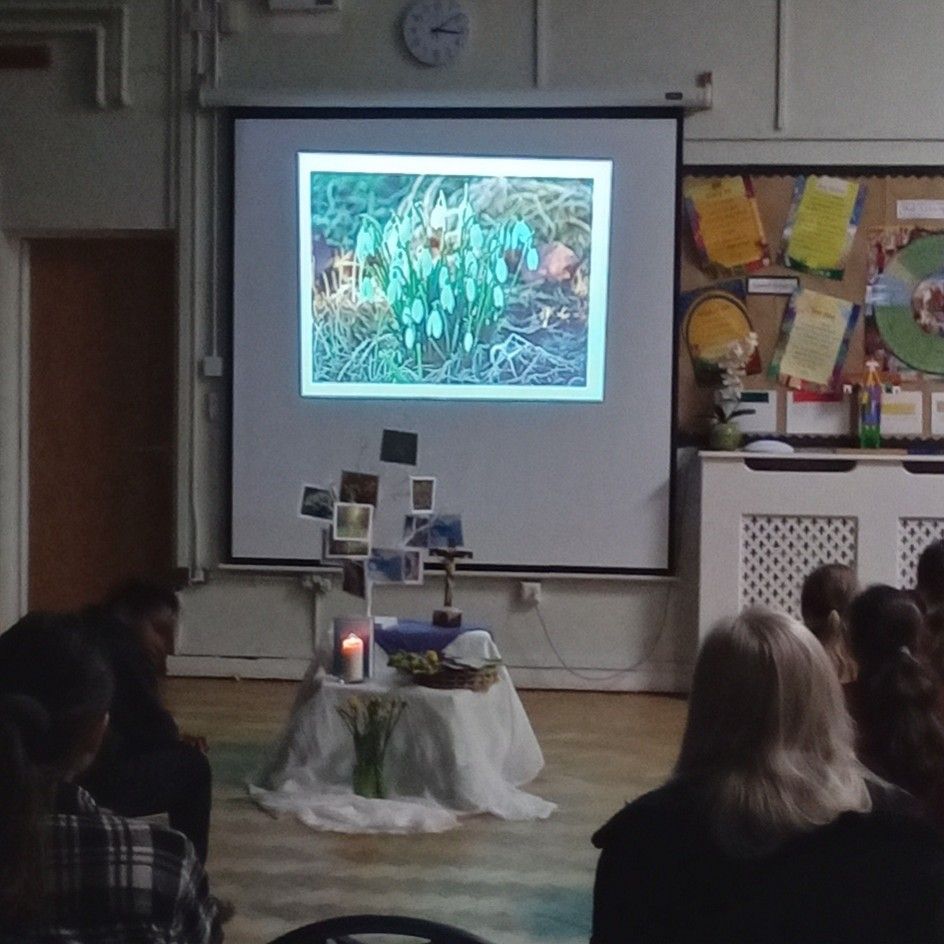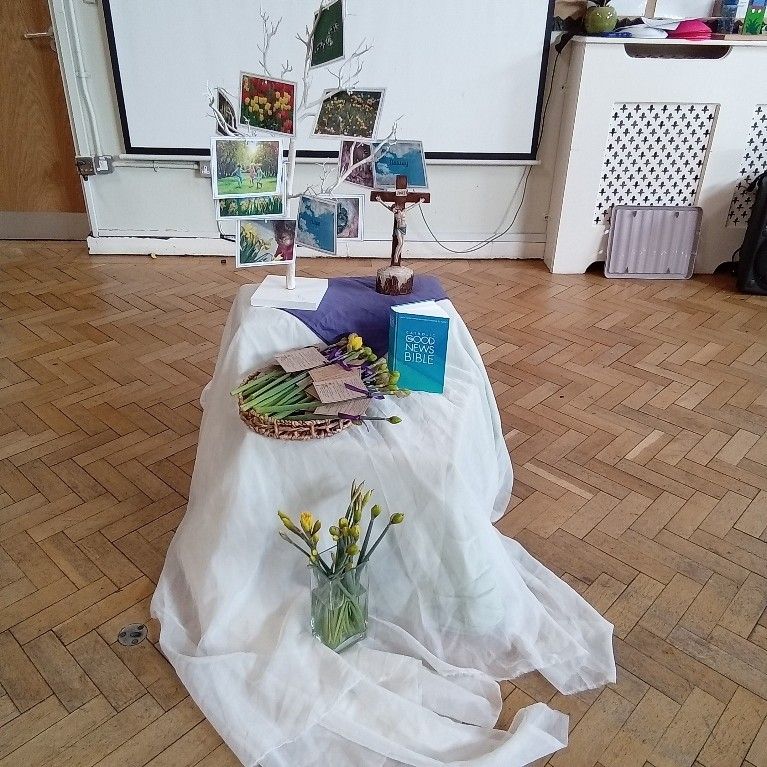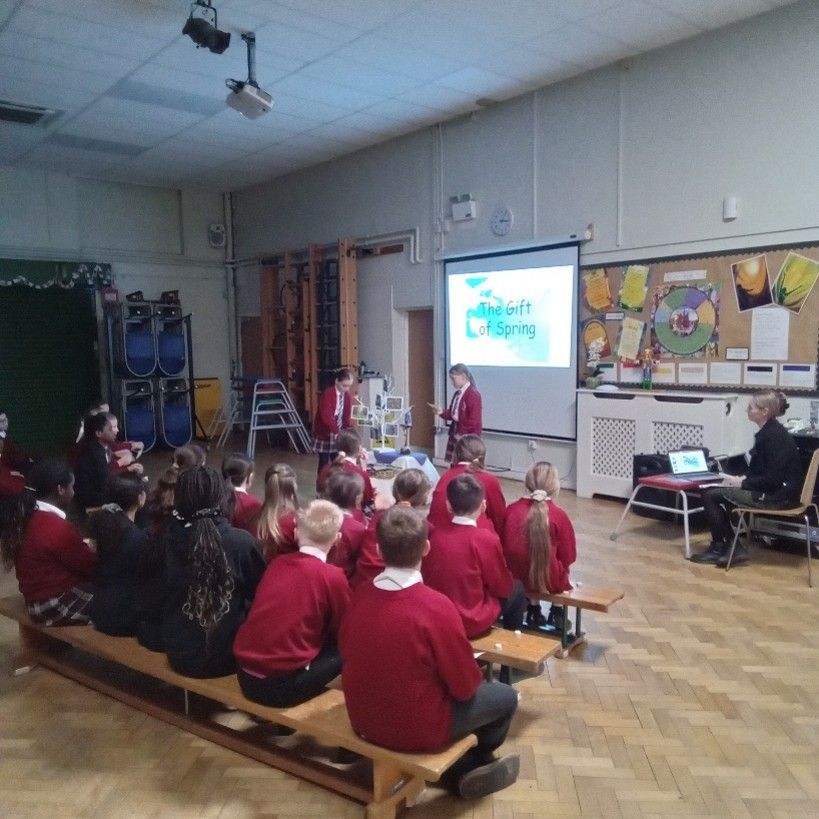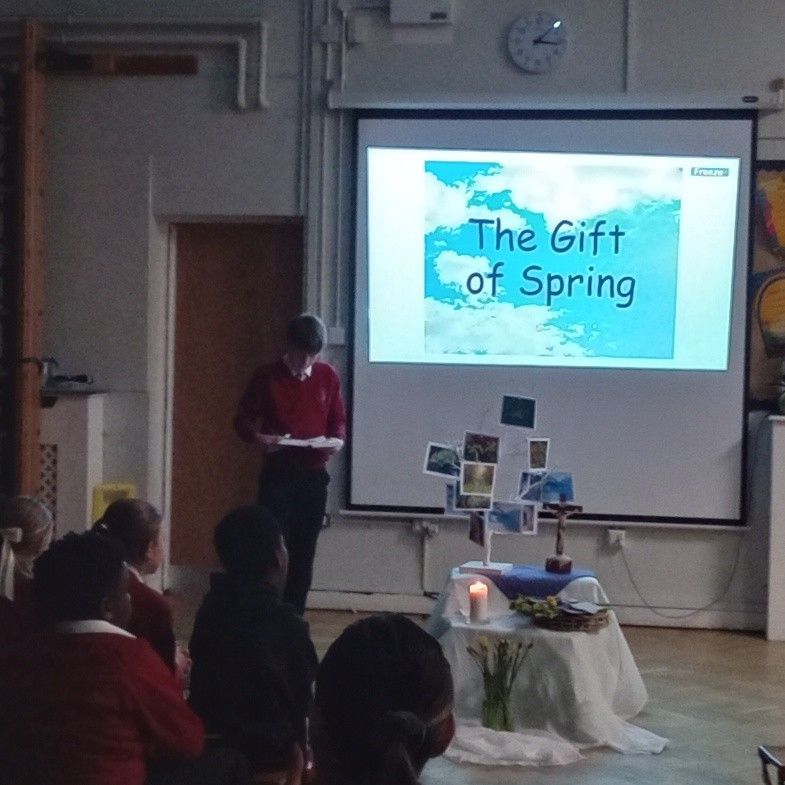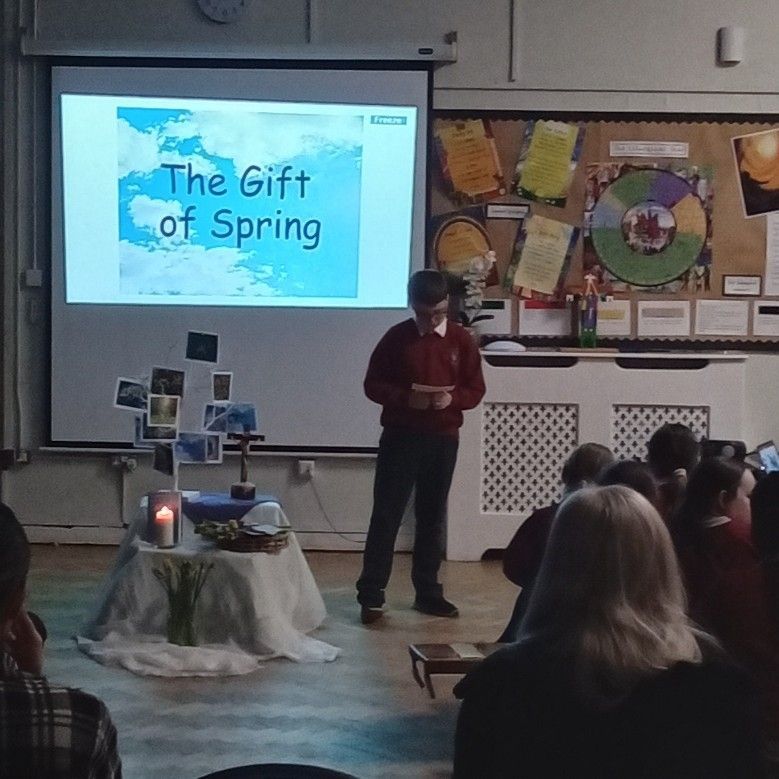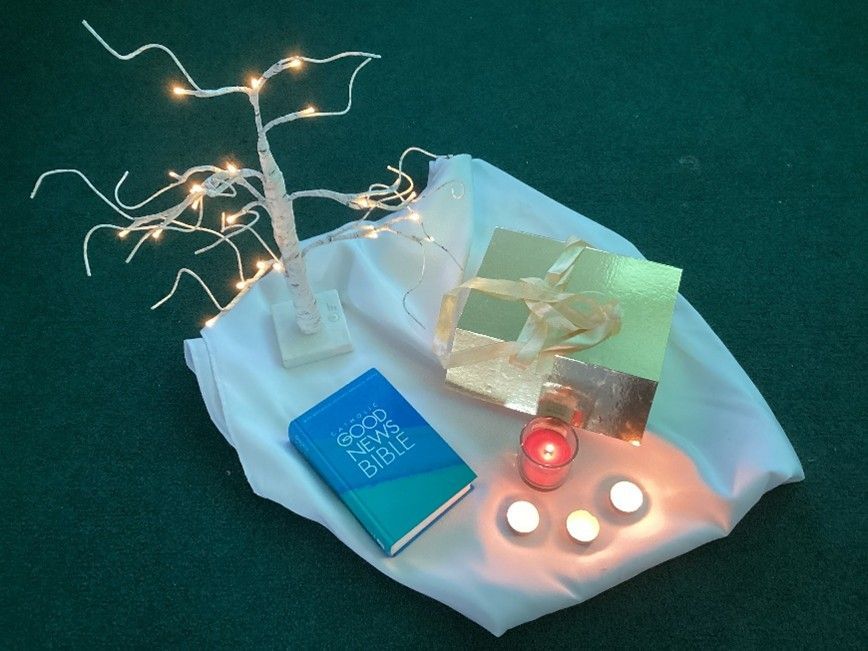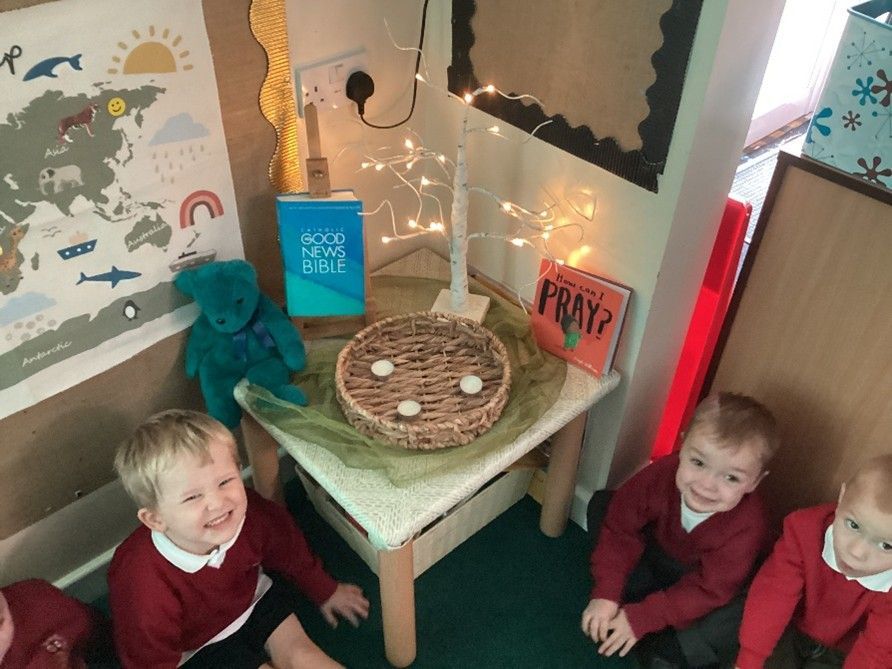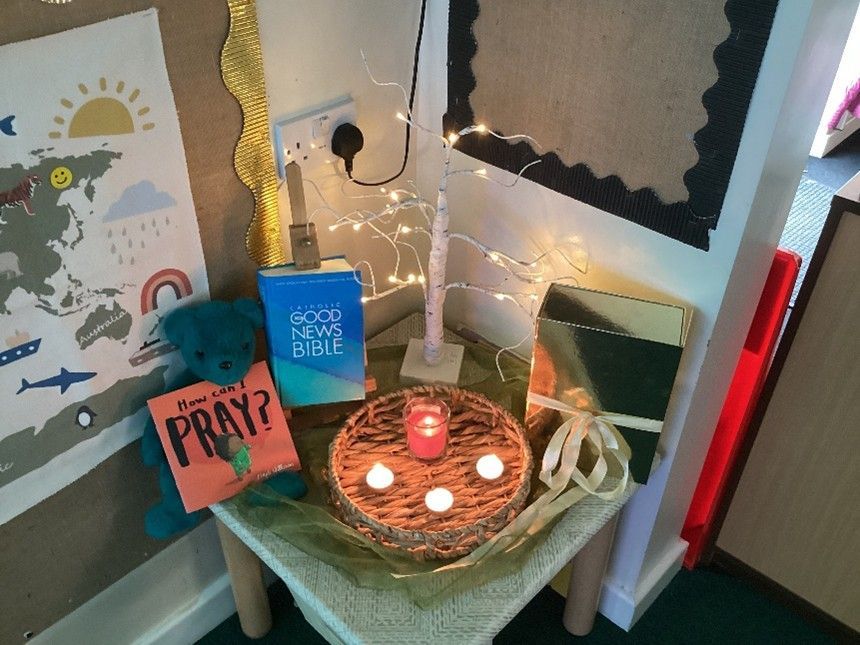The Bishop’s requirement of 10 percent of curriculum teaching time is clearly indicated on the class timetables.
To know You more clearly:
In year groups Nursery through to Year 4 the delivery of R.E. will be supported by the model curriculum ‘To know Your more clearly’, this will be supported by the Archdiocese of Liverpool Scheme of Work. This programme is currently optional but will be compulsory for all year groups from January 2027. We are following the Archdiocese of Liverpool’s rollout and have introduced the programme to each year group accordingly.
The model curriculum has six components that will be known as branches. Each one has a core theme and invites pupils to learn about an aspect of Revelation, Scripture, life in Christ, and life in the Church, and to discern what their learning means academically and experientially enabling them to see, judge, and act through a deeper knowledge of the Christian faith.
The six branches are:
1. Creation and Covenant
2. Prophecy and Promise
3. From Galilee to Jerusalem
4. From Desert to Garden
5. To the Ends of the Earth
6. Dialogue and Encounter
The study of other Religions and Worldviews
• Dialogue
• Encounter
The Sacraments – these are taught within and across branches. Pupils encounter scripture and what the Church teaches about scripture and what this means for a life lived in Christ as part of the Catholic faith. The approach taken should encompass a variety of teaching and learning styles, which enable the needs of individual pupils to be met though a broad and balanced, cross-curricular, creative lessons.
Ways of Knowing – set out the skills that pupils should be developing as they progress through their curriculum journey. The three ways of knowing are: understand, discern, and respond.
-------------------------------------
Come and See:
From September 2025, in year groups 5 & 6, the delivery of R.E. will continue to be supported by the ‘Come and See’ programme for Religious Education; recommended by the Archdiocese of Liverpool.
Overview
Come and See is developed through three themes based on the documents of the Second Vatican Council, which are gradually explored each year at greater depth. They are Church, Sacrament and Christian Living.
Process
The process for delivering the topics in ‘Come and See’ has three stages – Explore, Reveal and Respond which enable pupils to develop knowledge, understanding, skills and attitudes. SEARCH-EXPLORE
• Explore
This is the introduction to the topic where the children’s life experience is explored, the question(s) it raises are wondered at, shared, investigated and their significance reflected upon
(Teaching Time- 1 week).
• Reveal
This is the heart of the programme where knowledge and understanding of the Catholic faith is revealed through the Word, in Scripture, Tradition, doctrine, prayers, rites and Christian living
(Teaching Time- 2 weeks).
• Respond
This is where the learning is assimilated, celebrated and responded to in daily life
(Teaching Time- 1 week).
Topics
Both year groups will complete a total of 9 topics and an additional 2 topics looking at other faiths. Judaism and Sikhism are covered in both year groups.

